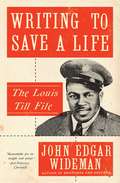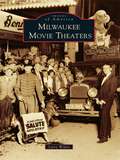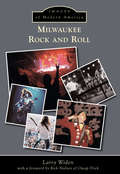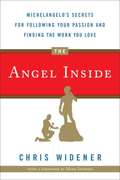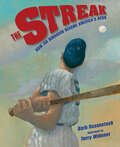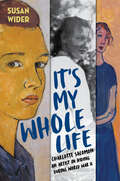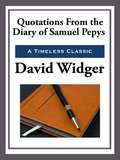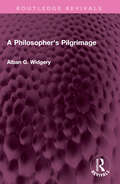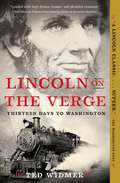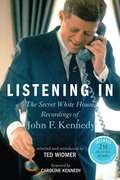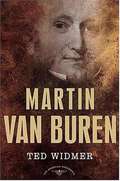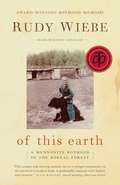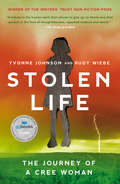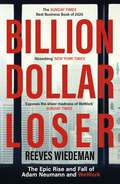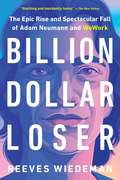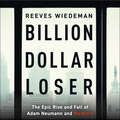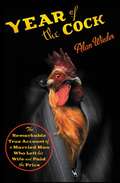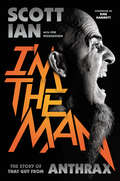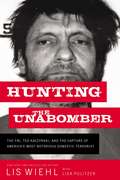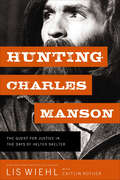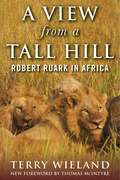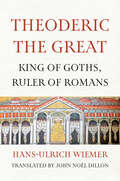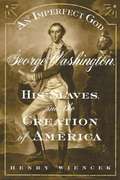- Table View
- List View
Writing to Save a Life: The Louis Till File (Canons #84)
by John Edgar WidemanAn award-winning writer traces the life of the father of iconic Civil Rights martyr Emmett Till--a man who was executed by the Army ten years before Emmett's murder. An evocative and personal exploration of individual and collective memory in America by one of the most formidable Black intellectuals of our time.In 1955, Emmett Till, aged fourteen, traveled from his home in Chicago to visit family in Mississippi. Several weeks later he returned, dead; allegedly he whistled at a white woman. His mother, Mamie, wanted the world to see what had been done to her son. She chose to leave his casket open. Images of her brutalized boy were published widely. While Emmett's story is known, there's a dark side note that's rarely mentioned. Ten years earlier, Emmett's father was executed by the Army for rape and murder. In Writing to Save a Life, John Edgar Wideman searches for Louis Till, a silent victim of American injustice. Wideman's personal interaction with the story began when he learned of Emmett's murder in 1955; Wideman was also fourteen years old. After reading decades later about Louis's execution, he couldn't escape the twin tragedies of father and son, and tells their stories together for the first time. Author of the award-winning Brothers and Keepers, Wideman brings extraordinary insight and a haunting intimacy to this devastating story. An amalgam of research, memoir, and imagination, Writing to Save a Life is completely original in its delivery--an engaging and enlightening conversation between generations, the living and the dead, fathers and sons. Wideman turns seventy-five this year, and he brings the force of his substantial intellect and experience to this beautiful, stirring book, his first nonfiction in fifteen years.
Milwaukee Movie Theaters: A Pictorial History Of Milwaukee's Movie Theaters (Images of America)
by Larry WidenPrior to World War II, there were 90 single-screen movie theaters in Milwaukee. By 1960, that number had been reduced by half. With the arrival of television for the home market, the golden age of the movie theater in Milwaukee was dead. Yet their ghosts continue to haunt the old neighborhoods. Churches, warehouses, stores, nightspots, and other businesses now occupy the former Tivoli, Paris, Roosevelt, and Savoy Buildings. Others are simply vacant hulks, decaying from the inside out. The Elite, Regent, Lincoln, and Warner are but a few of the many silent sentinels from the days when Milwaukee was in love with the movies.
Milwaukee Rock and Roll
by Larry Widen Rick Nielsen of Cheap TrickThe history of rock music in Milwaukee began at an age when some musicians played in a segregated part of the city. At the same time, a young singer named Buddy Holly kicked off a tour that ended with a plane crash in Iowa 11 days later. The following years brought the Beatles, Rolling Stones, and the rest of the British Invasion. In the late 1960s came acid rock, civil unrest, and Summerfest, a music festival that continues to this day. Milwaukee has had its moments in the spotlight: Bob Dylan left the stage after two songs in 1964, Bruce Springsteen's 1975 concert was delayed for hours while police searched for a bomb in the theater, hundreds of Black Sabbath fans rioted after a 1980 show, and the Plasmatics' Wendy O. Williams was beaten by police in 1981. And then there was the helicopter crash in which blues guitarist Stevie Ray Vaughn perished.
The Angel Inside: Michelangelo's Secrets for Following Your Passion and Finding the Work You Love
by Chris WidenerThere will come a time when you must decide to lead the life someone else has chosen for you or the life you want. According to legend, when a young boy asked the great Renaissance artist Michelangelo why he was working so hard hitting the block of marble that would eventually become his greatest sculpture,David, the artist replied, Young man, there is an angel inside this rock, and I am setting him free. InThe Angel Inside,the renowned consultant and career coach Chris Widener uses Michelangelos words to explore the hidden potential that exists within us all. In this unforgettable tale,Tom Cook, a disillusioned American businessman, has traveled to Italy looking for direction in his life. In Florence, the last city on his tour, Tom meets a mysterious old man who opens his eyes to the art and life of Michelangelo and reveals what the artists work can teach himand all of us about the power of following your passion. Among the lessons that Tom learns over the course of the next day: The beauty is in the details Your hand creates what your mind conceives All great accomplishments start with a single swift action No one begins by creating the Sistine Chapel Whether you're looking for a way to reinvigorate your career or searching for the courage to begin a new one, THE ANGEL INSIDE is a must-read if you want to find true meaning in your life and work. The break-out business parable that's already sold more than 70,000 copies,The Angel Inside tells the story of a young man searching for meaning in his work and finding it in an unlikely place: the life and art of Michelangelo.
The Streak: How Joe DiMaggio Became America's Hero
by Terry Widener Barb RosenstockIn the summer of 1941, Yankee center fielder Joe DiMaggio and his favorite bat, Betsy Ann, begin the longest hitting streak in baseball history. But when Betsy Ann goes missing, will DiMaggio keep hitting? Set on the brink of World War II, this is a spellbinding account of a sports story that united the country and made DiMaggio a hero, at a time when one was profoundly needed. Barb Rosenstock's action-packed text and Terry Widener's powerful illustrations capture DiMaggio's drive as well as his frustration. The book also includes headlines, quotes, stats, and a detailed bibliography.
It's My Whole Life: Charlotte Salomon: An Artist in Hiding During World War II
by Susan WiderA gripping middle grade biography of Charlotte Salomon, and an ode to how art can capture both life’s everyday beauty and its monumental horrors. Charlotte Salomon was a German-Jewish artist born in Berlin. She is remembered for her autobiographical series of paintings, Life? or Theater?, which consists of 769 individual works painted between 1940 and 1942 while she was in hiding from the Nazis in the south of France, and which has been called a painted parallel to Anne Frank’s The Diary of a Young Girl and an early graphic novel. In 1943, she entrusted her collection of paintings to a friend. In October of that year, she was captured and deported to Auschwitz, where she and her unborn child were gassed to death upon arrival. It’s My Whole Life covers Charlotte’s remarkable life from her childhood and art school days to her time as a refugee in Nazi-occupied France, where she created the largest single work of art created by a Jew during the Holocaust. Compellingly written and accompanied by vivid color photographs of Salomon’s artwork, Susan Wider has crafted an illuminating portrait of an enigmatic and evanescent young artist.
Quotations from the Diary of Samuel Pepys
by David WidgerThe diary which Samuel Pepys kept from January 1660 to May 1669 ...is one of our greatest historical records and... a major work of English literature, writes the renowned historian Paul Johnson. A witness to the coronation of Charles II, the Great Plague of 1665, and the Great Fire of 1666, Pepys chronicled the events of his day. Originally written in a cryptic shorthand, Pepys's diary provides an astonishingly frank and diverting account of political intrigues and naval, church, and cultural affairs, as well as a quotidian journal of daily life in London during the Restoration.
A Philosopher's Pilgrimage (Routledge Revivals)
by Alban G. WidgeryFirst Published in 1961 A Philosopher's Pilgrimage is a plain-spoken autobiography of Alban G. Widgery. This is the record of the life of a philosopher who never allowed concern with ideas to distract him from the richness of experiences. He was a student, colleague and friend of some of the leading personalities of the last half century. Having lived in England, Scotland, Germany, France, India, Hawaii, and the United States, he formed definite impressions of their peoples. In India, on the personal staff of H.H. Sayaji Rao III, he greatly influenced him in his pioneer achievements. Associated with Hindus, Buddhists, Parsis, Muslims, and Jews, he came to appreciate essentials of their faiths. He critically considered the teachings of such thinkers as Nietzsche, Tolstoy, and Shaw. With a clarity of exposition and with humour he presents a philosophy of life worthy of serious consideration. This book will be of interest to students of philosophy.
American Speeches: Political Oratory from Abraham Lincoln to Bill Clinton
by Ted WidmerFrom the book: Public speeches have profoundly shaped American history and culture, transforming not only our politics but also our language and our sense of national identity. This volume collects the unabridged texts of 83 eloquent and dramatic speeches delivered by 45 American public figures between 1865 and 1997, beginning with Abraham Lincoln's last speech on Reconstruction and ending with Bill Clinton's heartfelt tribute to the Little Rock Nine. During this period American political oratory continued to evolve, as a more conversational style, influenced by the intimacy of radio and television, emerged alongside traditional forms of rhetoric. Included are speeches on Reconstruction by Thaddeus Stevens and African-American congressman Robert Brown Elliott, Frederick Douglass's brilliant oration on Abraham Lincoln, and Oliver Wendell Holmes's "touched with fire" Memorial Day Address. Speeches by Robert Ingersoll and William Jennings Bryan capture the fervor of 19th-century political conventions, while Theodore Roosevelt and Carl Schurz offer opposing views on imperialism. Ida B. Wells and Mary Church Terrell denounce the cruelty of lynching and the injustice of Jim Crow; Susan B. Anthony, Elizabeth Cady Stanton, and Carrie Chapman Catt advocate the enfranchisement of women; and Woodrow Wilson and Henry Cabot Lodge present conflicting visions of the League of Nations. Also included are wartime speeches by George Patton and Dwight Eisenhower; an address on the atomic bomb by J. Robert Oppenheimer; Richard Nixon's "Checkers Speech"; Malcolm X's "The Ballot or the Bullet"; Barry Goldwater's speech to the 1964 Republican convention; Mario Savio urging Berkeley students to stop "the machine"; Barbara Jordan defending the Constitution during Watergate; and an extensive selection of speeches by Franklin Roosevelt, Martin Luther King, John F. Kennedy, and Ronald Reagan. Ted Widmer, editor, is t
Lincoln on the Verge: Thirteen Days to Washington
by Ted WidmerAs a divided nation plunges into the deepest crisis in its history, Abraham Lincoln boards a train for Washington and his inauguration—an inauguration Southerners have vowed to prevent by any means necessary. Drawing on new research, this account reveals the President-Elect as a work in progress, showing him on the verge of greatness, foiling an assassination attempt, and forging an unbreakable bond with the American people. On the eve of his 52nd birthday, February 11, 1861, the President-Elect of the United States, Abraham Lincoln, walked onto a train, the first step of his journey to the White House, and his rendezvous with destiny. But as the train began to carry Lincoln toward Washington, it was far from certain what he would find there. Bankrupt and rudderless, the government was on the verge of collapse. To make matters worse, reliable intelligence confirmed a conspiracy to assassinate him as he passed through Baltimore. It is no exaggeration to say that the fate of the Republic hung in the balance. How did Lincoln survive this grueling odyssey, to become the president we know from the history books? Lincoln on the Verge tells the story of a leader discovering his own strength, improvising brilliantly, and seeing his country up close during these pivotal thirteen days. From the moment the Presidential Special left the station, a new Lincoln was on display, speaking constantly, from a moving train, to save the Republic. The journey would draw on all of Lincoln&’s mental and physical reserves. But the President-Elect discovered an inner strength, which deepened with the exhausting ordeal of meeting millions of Americans. Lincoln on the Verge tells the story of America&’s greatest president and the obstacles he overcame, well before he could take the oath of office and deliver his inaugural address.
Listening In: The Secret White House Recordings of John F. Kennedy
by Ted WidmerIn July 1962, in an effort to preserve an accurate record of Presidential decision-making in a highly charged atmosphere of conflicting viewpoints, strategies and tactics, John F. Kennedy installed hidden recording systems in the Oval Office and in the Cabinet Room. The result is a priceless historical archive comprising some 265 hours of taped material. JFK was elected president when Civil Rights tensions were near the boiling point, and Americans feared a nuclear war. Confronted with complex dilemmas necessitating swift and unprecedented action, President Kennedy engaged in intense discussion and debate with his cabinet members and other advisors. Now, in conjunction with the fiftieth anniversary of the Kennedy presidency, the John F. Kennedy Library and historian Ted Widmer have carefully selected the most compelling and important of these remarkable recordings for release, fully restored and re-mastered onto two 75-minute CDs for the first time. Listening In represents a uniquely unscripted, insider account of a president and his cabinet grappling with the day-to-day business of the White House and guiding the nation through a hazardous era of uncertainty. Accompanied by extensively annotated transcripts of the recordings, and with a foreword by Caroline Kennedy, Listening In delivers the story behind the story in the unguarded words and voices of the decision-makers themselves. Listening In covers watershed events, including the Cuban Missile Crisis, the Space Race, Vietnam, and the arms race, and offers fascinating glimpses into the intellectual methodology of a circumspect president and his brilliant, eclectic brain trust. Just as the unique vision of President John F. Kennedy continues to resonate half a century after his stirring speeches and bold policy decisions, the documentary candor of Listening In imparts a vivid, breathtaking immediacy that will significantly expand our understanding of his time in office.
Martin Van Buren (The American Presidents Series)
by Ted Widmer Arthur M. SchlesingerThe first president born after America's independence ushers in a new era of no-holds-barred democracy The first "professional politician" to become president, the slick and dandyish Martin Van Buren was to all appearances the opposite of his predecessor, the rugged general and Democratic champion Andrew Jackson. Van Buren, a native Dutch speaker, was America's first ethnic president as well as the first New Yorker to hold the office, at a time when Manhattan was bursting with new arrivals. A sharp and adroit political operator, he established himself as a powerhouse in New York, becoming a U.S. senator, secretary of state, and vice president under Jackson, whose election he managed. His ascendancy to the Oval Office was virtually a foregone conclusion. Once he had the reins of power, however, Van Buren found the road quite a bit rougher. His attempts to find a middle ground on the most pressing issues of his day-such as the growing regional conflict over slavery-eroded his effectiveness. But it was his inability to prevent the great banking panic of 1837, and the ensuing depression, that all but ensured his fall from grace and made him the third president to be denied a second term. His many years of outfoxing his opponents finally caught up with him. Ted Widmer, a veteran of the Clinton White House, vividly brings to life the chaos and contention that plagued Van Buren's presidency-and ultimately offered an early lesson in the power of democracy.
Alone: A Widow's Search for Joy
by Katie F. WiebeKatie Wiebe's husband died of a rare disease, only two months after they moved to a new community, far from relatives. Katie was thirty-eight. She had to support her four children and her business skills were rusty. She was alone. This book is the story of how Katie Wiebe found strength to survive her loneliness and loss of identity, moving beyond widowhood into a new life, a new profession, and a new assurance that God wanted her to make a contribution to life.
of this earth: A Mennonite Boyhood In The Boreal Forest
by Rudy WiebeRudy Wiebe has written award-winning fiction for decades. He is recognized as one of Canada's finest literary treasures. Twice he has received Canada's most prestigious prize for fiction writing: The Governor-General's Award (equivalent to the Pulitzer Prize for fiction). Now comes new recognition for Wiebe's nonfiction writing. His recently released childhood memoir, Of This Earth: A Mennonite Boyhood in the Boreal Forest, has won the Charles Taylor Prize for Literary Nonfiction (considered to be the country's most prestigious literary nonfiction prize). The book holds Rudy's memoirs of growing up through age 12. His immigrant family cut a farm out of stony bushland in remote Saskatchewan. They hand-dug their well, climbed a ladder to their beds under the rafters, farmed with horses, and traveled by sleigh on the frontier. Stories and singing and food from their native Ukraine and Poland held them and filled their bodies and souls. Of This Earth is written with "spare and eloquent prose," say the jurors who chose the book for the Charles Taylor Prize. Wiebe "conveys the riches of a hardscrabble inheritance; a love of words, reading and music, a sustaining yet unsentimental faith, and a bond with the natural world, all of which have provided a compass for his writing life." One of the Taylor-Prize jurors reflected, "Rudy's book haunts you; it stays with you."
Stolen Life
by Rudy Wiebe Yvonne Johnson"Written with primal intensity, touched with redeeming compassion, Rudy Wiebe--has explored our history, our roots and the secrets of our hearts with moral seriousness and great feeling." - Governor General's Award for Fiction Citation, l994A powerful, major work of non-fiction, beautifully written, with the impact of Mikal Gilmore's Shot in the Heart, from the twice winner of the Governor General's Award for Fiction and the great-great-granddaughter of Big Bear. This is a story about justice, and terrible injustices, a story about a murder, and a courtroom drama as compelling as any thriller as it unravels the events that put Yvonne Johnson behind bars for life, first in Kingston's Federal Prison for Women until the riot that closed it, and presently in the Okimaw Ochi Healing Lodge in the Cypress Hills. But above all it is the unforgettable true story of the life of a Native woman who has decided to speak out and break the silence, written with the redeeming compassion that marks all Rudy Wiebe's writing, and informed throughout by Yvonne Johnson's own intelligence and poetic eloquence.Characters and events spring to life with the vividness of fiction. The story is told sometimes in the first person by Rudy Wiebe, sometimes by Yvonne herself. He tracks down the details of Yvonne's early life in Butte, Montana, as a child with a double-cleft palate, unable to speak until the kindness of one man provided the necessary operations; the murder of her beloved brother while in police custody; her life of sexual abuse at the hands of another brother, grandfather and others; her escape to Canada - to Winnipeg and Wetaskiwin; the traumas of her life that led to alcoholism, and her slow descent into hell despite the love she found with her husband and three children.He reveals how she participated, with three others, in the murder of the man she believed to be a child abuser; he unravels the police story, taking us step by step, with jail-taped transcripts, through the police attempts to set one member of the group against the others in their search for a conviction - and the courtroom drama that followed. And Yvonne openly examines her life and, through her grandmother, comes to understand the legacy she has inherited from her ancestor Big Bear; having been led through pain to wisdom, she brings us with her to the point where she finds spiritual strength in passing on the lessons and understandings of her life. How the great-great-granddaughter of Big Bear reached out to the author of The Temptations of Big Bear to help her tell her story is itself an extraordinary tale. The co-authorship between one of Canada's foremost writers and the only Native woman in Canada serving life imprisonment for murder has produced a deeply moving, raw and honest book that speaks to all of us, and gives us new insight into the society we live in, while offering a deeply moving affirmation of spiritual healing.From the Hardcover edition.
Billion Dollar Loser: The Epic Rise and Fall of WeWork
by Reeves Wiedeman**The Sunday Times Best Business Book of the Year 2020**'A satisfying ticktock of the company's rapid rise and crash, culminating in its disastrous I.P.O. in 2019 and Neumann's ouster.' New York Times'This absorbing book exposes the sheer madness of WeWork: not just its founder Adam Neumann's extreme hubris, but why so many wiser minds bought into the fairytale.' Sunday TimesThe inside story of the rise and fall of WeWork, showing how the excesses of its founder shaped a corporate culture unlike any other.__________In its earliest days, WeWork promised the impossible: to make the workplace cool.Adam Neumann, an immigrant determined to make his fortune in the United States, landed on the idea of repurposing surplus New York office space for the burgeoning freelance class. Over the course of ten years, WeWork attracted billions of dollars from some of the most sought-after investors in the world, while spending it to build a global real estate empire.Based on more than two hundred interviews, Billion Dollar Loser chronicles the breakneck speed at which WeWork's CEO built and grew his company. Culminating in a day-by-day account of the five weeks leading up to WeWork's botched IPO and Neumann's dramatic ouster, Reeves Wiedeman exposes the story of the company's desperate attempt to secure the funding it needed in the final moments of a decade defined by excess.With incredible access and piercing insight into the company, Billion Dollar Loser tells the full, inside story of WeWork and its CEO Adam Neumann who together came to represent the most audacious, and improbable, rise and fall in business.__________A Sunday Times Best Business Book of the YearFortune Best Book of the YearNew York Times' Books to Watch For in OctoberWIRED Books to Read This FallBloomberg's Nonfiction Title to Know this FallNewsweek's Must Read Fall NonfictionPublishers Weekly Top Ten for Business & EconomicsInsideHook's Best Books for OctoberLike John Carreyrou's Bad Blood and Mike Isaac's Super Pumped before it, Billion Dollar Loser traces the turmoil at a startup driven by a charismatic, arrogant founder.'A frisky dissection of how a rickety real-estate leasing company tricked the world into seeing it as an immensely valuable, society-shifting tech unicorn.' WIRED
Billion Dollar Loser: The Epic Rise and Spectacular Fall of Adam Neumann and WeWork
by Reeves Wiedeman&“Vivid, carefully reported drama that readers will gulp down as if it were a fast-paced novel&” (Ken Auletta) ꟷ the inside story of WeWork and its CEO, Adam Neumann, which tells the remarkable saga of one of the most audacious, and improbable, rises and falls in American business history In its earliest days, WeWork promised the impossible: to make the American work place cool. Adam Neumann, an immigrant determined to make his fortune in the United States, landed on the idea of repurposing surplus New York office space for the burgeoning freelance class. Over the course of ten years, WeWork attracted billions of dollars from some of the most sought-after investors in the world, while spending it to build a global real estate empire that he insisted was much more than that: an organization that aspired to nothing less than "elevating the world's consciousness." Moving between New York real estate, Silicon Valley venture capital, and the very specific force field of spirituality and ambition erected by Adam Neumann himself, Billion Dollar Loser lays bare the internal drama inside WeWork. Based on more than two hundred interviews, this book chronicles the breakneck speed at which WeWork&’s CEO built and grew his company along with Neumann&’s relationship to a world of investors, including Masayoshi Son of Softbank, who fueled its chaotic expansion into everything from apartment buildings to elementary schools. Culminating in a day-by-day account of the five weeks leading up to WeWork&’s botched IPO and Neumann&’s dramatic ouster, Wiedeman exposes the story of the company&’s desperate attempt to secure the funding it needed in the final moments of a decade defined by excess. Billion Dollar Loser is the first book to indelibly capture the highly leveraged, all-blue-sky world of American business in President Trump&’s first term, and also offers a sober reckoning with its fallout as a new era begins.
Billion Dollar Loser: A Sunday Times Book of the Year
by Reeves WiedemanThe inside story of the rise and fall of WeWork, showing how the excesses of its founder shaped a corporate culture unlike any otherChristened a potential savior of Silicon Valley's startup culture, Adam Neumann was set to take WeWork, his office share company disrupting the commercial real estate market, public, cash out on the company's 47 billion dollar valuation, and break the string of major startups unable to deliver to shareholders. But as employees knew, and investors soon found out, WeWork's capital was built on promises that the company was more than a real estate purveyor, that in fact it was a transformational technology company.Veteran journalist Reeves Weideman dives deep into WeWork and it CEO's astronomical rise, from the marijuana and tequila-filled board rooms to cult-like company summer camps and consciousness-raising with Anthony Kiedis. Billion Dollar Loser is a character-driven business narrative that captures, through the fascinating psyche of a billionaire founder and his wife and co-founder, the slippery state of global capitalism.(P) 2020 Hachette Audio
Year of the Cock: The Remarkable True Account of a Married Man Who Left His Wife and Paid the Price
by Alan WiederFrom a powerful new voice in nonfiction comes this electrifying chronicle of a married man who leaves his wife to pursue a carefree bachelorhood - only to plunge into an abyss of shame, regret, and penis envy. Thirty-year-old Alan Wieder has everything a man could possibly want: a nice home in L.A. , a thriving Hollywood career, and to top it all off, a beautiful and adoring wife. Then one day in 2005 - the Year of the Rooster - he wakes up with questions:Have I settled down too soon? Am I consigned to a humdrum future of marriage, kiddies, home-cooked meals and hybrid SUVs? How the%&!did this happen to me? And just like that - after ten years in a committed relationship - Alan decides to walk out on his wife to pursue his fantasy of becoming a hardcore bachelor. Explaining very little, thinking even less, he dives into his exhilarating new single existence - buying a vintage Porsche, moving into a tastefully decorated bachelor pad, ignoring his wife, and bedding as many chicks as possible. However, to Alan's surprise and dismay, becoming a single dude also unleashes in him a torrent of crippling insecurities that he didn't even know he had. And soon, his would-be swingin' bachelorhood is cut short -veryshort - by a strange and shameful obsession that drives him to utter madness. Some men leave their wives only to discover that the grass isn't greener. What Alan Wieder discovers - about the perils of newfound freedom, and about his own fragile male psyche - is far more agonizing and wretched. In this riveting and brutally honest memoir, Alan recounts the true story of his impulsive, wild, and ultimately disastrous foray into bachelorhood. A tragicomic tale of betrayal, sexual (mis)adventure, and ultimately redemption,Year of the Cockmarks the debut of a remarkably talented new writer.
I'm the Man: The Story of That Guy from Anthrax
by Jon Wiederhorn Scott IanThe long-awaited and vastly entertaining autobiography of Scott Ian, guitarist and founder of groundbreaking and influential thrash metal legend Anthrax
Hunting the Unabomber: The FBI, Ted Kaczynski, and the Capture of America’s Most Notorious Domestic Terrorist
by Lis WiehlThe spellbinding account of the most complex and captivating manhunt in American history.On April 3, 1996, a team of FBI agents closed in on an isolated cabin in remote Montana, marking the end of the longest and most expensive investigation in FBI history. The cabin's lone inhabitant was a former mathematics prodigy and professor who had abandoned society decades earlier. Few people knew his name, Theodore Kaczynski, but everyone knew the mayhem and death associated with his nickname: the Unabomber.For two decades, Kaczynski had masterminded a campaign of random terror, killing and maiming innocent people through bombs sent in untraceable packages. The FBI task force charged with finding the perpetrator of these horrifying crimes grew to 150 people, yet his identity remained a maddening mystery. Then, in 1995, a "manifesto" from the Unabomber was published in the New York Times and Washington Post, resulting in a cascade of tips--including the one that cracked the case.Hunting the Unabomber includes:Exclusive interviews with key law enforcement agents who attempted to track down Kaczynski, correcting the history distorted by earlier films and streaming seriesNever-before-told stories of inter-agency law enforcement conflicts that changed the course of the investigationAn in-depth, behind-the-scenes look at why the hunt for the Unabomber was almost shut down by the FBINew York Times bestselling author and former federal prosecutor Lis Wiehl meticulously reconstructs the white-knuckle, tension-filled hunt to identify and capture the mysterious killer. This is a can&’t-miss, true crime thriller of the years-long battle of wits between the FBI and the brilliant-but-criminally insane Ted Kaczynski.
Hunting Charles Manson: The Quest for Justice in the Days of Helter Skelter
by Lis Wiehl Caitlin Rother"Hunting Charles Manson the best true crime book you will ever read....Lock your doors, keep the night lights on, and read this book." - Linda Fairstein, New York Times bestselling crime novelistIn the late summer of 1969, the nation was transfixed by a series of gruesome murders in the hills of Los Angeles. Newspapers and television programs detailed the brutal slayings of a beautiful actress--twenty six years old and eight months pregnant with her first child--as well as a hair stylist, an heiress, a businessman, and other victims. The City of Angels was plunged into a nightmare of fear and dread. In the weeks and months that followed, law enforcement faced intense pressure to solve crimes that seemed to have no connection.Finally, after months of dead-ends, false leads, and near-misses, Charles Manson and members of his "family" were arrested. The bewildering trials that followed once again captured the nation and forever secured Manson as a byword for the evil that men do.Drawing upon deep archival research and exclusive personal interviews--including unique access to Manson Family parole hearings--former federal prosecutor and Fox News legal analyst Lis Wiehl has written a propulsive, page-turning historical thriller of the crimes and manhunt that mesmerized the nation. And in the process, she reveals how the social and political context that gave rise to Manson is eerily similar to our own.
A View from a Tall Hill: Robert Ruark in Africa
by Terry Wielandafrica; hunting; short stories; sporting Robert Ruark was perhaps the most renowned safari writer of the twentieth century. As a respected columnist and author during his lifetime, his writings have influenced thousands of hunters to travel to Africa to see the places that Ruark immortalized in his writings. Despite his impact, Ruark only wrote for a period of fifteen years, but it was a time where he lived his life to its fullest potential. He travelled all across the world in order to see and do everything he could dream of, but it was in East Africa that he came to find a spiritual home. As the area became increasingly independent of colonial rule, Ruark predicted the economic, social, and political ruin that has since been the daily reality of the region. In this detailed account of Ruark&’s life, Terry Wieland has written a definitive book on Ruark, the restless traveler, and the times in which he lived, as well as his lifelong fascination with Africa.
Theoderic the Great: King of Goths, Ruler of Romans
by Hans-Ulrich WiemerThe first full-scale history of Theoderic and the Goths in more than seventy-five years, tracing the transformation of a divided kingdom into a great power &“A monumental exploration. . . . It is the most important treatment of its subject since Wilhelm Ensslin&’s 1947 biography, and since Mr. Wiemer&’s book (here in John Noël Dillon&’s fluid English translation) surpasses its predecessor in breadth and sophistication, the author can claim the laurel of having written the best profile of Theoderic we have.&”—Kyle Harper, Wall Street Journal In the year 493, the leader of a vast confederation of Gothic warriors, their wives, and children personally cut down Odoacer, the man famous for deposing the last Roman emperor in 476. That leader became Theoderic the Great (454–526). This engaging history of his life and reign immerses readers in the world of the warrior-king who ushered in decades of peace and stability in Italy as king of Goths and Romans. Theoderic transformed his roving &“warrior nation&” from the periphery of the Roman world into a standing army that protected his taxpaying Roman subjects with the support of the Roman elite. With a ruling strategy of &“integration through separation,&” Theoderic not only stabilized Italy but also extended his kingdom to the western Balkans, southern France, and the Iberian Peninsula. Using sources as diverse as letters, poetry, coins, and mosaics, Hans-Ulrich Wiemer brings readers into the world of Theoderic&’s court, from Gothic warriors and their families to the notables, artisans, and shopkeepers of Rome and Ravenna to the peasants and enslaved people who tilled the soil on grand rural estates. This book offers a fascinating history of the leader who brought peace to Italy after the disintegration of the Roman Empire.
An Imperfect God: George Washington, His Slaves, and the Creation of America
by Henry WiencekWhen George Washington wrote his will, he made the startling decision to set his slaves free; earlier he had said that holding slaves was his "only unavoidable subject of regret."
